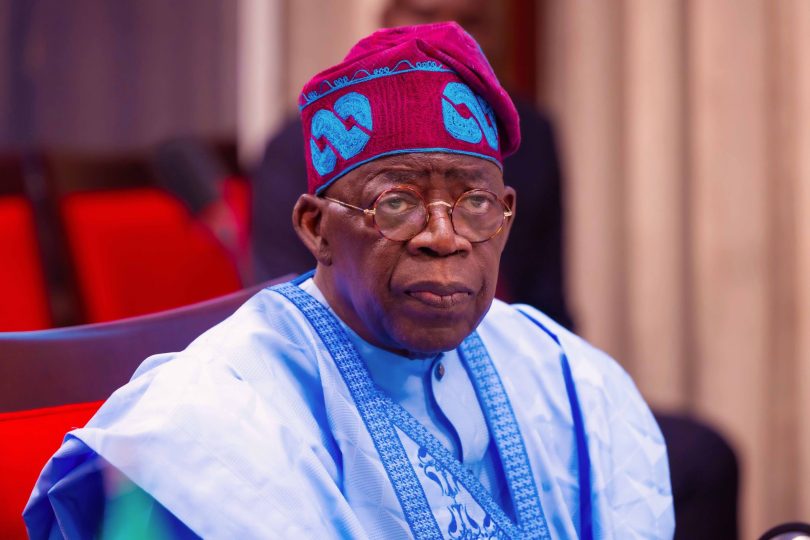The United States has reaffirmed plans to work with Nigeria’s Federal Government to curb religious violence and bring perpetrators to justice, following its decision to designate Nigeria a “Country of Particular Concern” (CPC) for alleged violations of religious freedom.
The Chair of the US Commission on International Religious Freedom (USCIRF), Vicky Hartzler, who recommended the designation, commended former President Donald Trump for what she described as a bold move to address the persecution of Christians in Nigeria.
Trump, in a post on his Truth Social platform, claimed that Christianity in Nigeria faces an “existential threat,” citing the killing of thousands of Christians by extremist groups. He warned that the US could consider “decisive measures,” including military intervention, if President Bola Tinubu’s administration fails to act.
Nigeria swiftly rejected the claim, describing it as inconsistent with facts and reaffirming its commitment to protecting citizens and promoting religious harmony.
Proposed US Sanctions Bill Targets Nigerian Officials
Following the CPC designation, the US Congress is considering a bill, The Nigeria Religious Freedom Accountability Act of 2025, sponsored by Senator Ted Cruz. The bill seeks sanctions against state governors, public officials, and non-state actors involved in enforcing blasphemy laws or violating religious freedoms.
It proposes penalties for judges, prison officials, and security officers found complicit in such acts, and directs the Secretary of State to enforce measures under the International Religious Freedom Act.
USCIRF Defends Nigeria’s Blacklisting
USCIRF’s Vice Chair, Asif Mahmood, told The PUNCH that Nigeria has consistently met the threshold for CPC designation since 2009 due to its failure to address religiously motivated violence.
The commission cited recent attacks — including the killing of 200 people at a Catholic mission in Benue and 27 worshippers at a mosque in Katsina — as evidence of escalating violence.
Mahmood stressed that the enforcement of blasphemy laws in 12 northern states remains a major concern, adding that Nigeria must demonstrate significant improvements to be removed from the CPC list.
China, ECOWAS, EU Oppose US Designation
China condemned the US move, calling it interference in Nigeria’s internal affairs.
Foreign Ministry spokesperson Mao Ning said Beijing “firmly supports Nigeria’s development path” and rejects the use of religion or human rights “as political weapons.”
Similarly, ECOWAS dismissed claims of genocide, asserting that terrorist attacks in the region target all communities regardless of religion. It urged global partners to focus on cooperation rather than division.
The European Union echoed this view, reaffirming its commitment to religious freedom while noting that Nigeria’s violence stems from multiple causes beyond faith.
Tinubu’s Diplomatic Response
Minister of Information and National Orientation, Mohammed Idris, said President Tinubu remains calm and is engaging global partners to clarify Nigeria’s position.
He noted that the President recently overhauled the nation’s security leadership and is strengthening interfaith dialogue to counter extremist narratives.
Idris reaffirmed that Nigeria remains a secular nation committed to religious freedom. “There has never been a government decision to favour one religion over another,” he said.
Dambazau Warns Against Foreign Manipulation
Former Chief of Army Staff, Lt. Gen. Abdulrahman Dambazau (retd.), alleged that the US may be seeking a military base in Nigeria under the guise of protecting Christians.
He said similar bases in Niger Republic failed to end terrorism and warned that foreign interests could exploit Nigeria’s internal divisions for strategic gain.
Regional and Civil Reactions
The Southern and Middle Belt Leaders Forum (SMBLF) described the US action as a “wake-up call” for Nigeria to address insecurity and prosecute perpetrators of violence.
Former Sokoto Governor Attahiru Bafarawa urged diplomatic engagement over confrontation, while the Yoruba Ronu Group criticised Trump’s remarks as “reckless and inflammatory.”
Civil society groups also faulted the government’s slow diplomatic response, urging professionalism in addressing the allegations.
Nigeria’s Path Forward
Despite mounting pressure, Nigeria’s government insists it is addressing insecurity through new leadership, interfaith dialogue, and regional collaboration.
Minister Idris said Tinubu’s administration would “continue to defend the nation’s image with facts, not emotions.”
ECOWAS and the EU have called for unity, urging partners to support Nigeria’s fight against terrorism without deepening divisions along religious lines.

